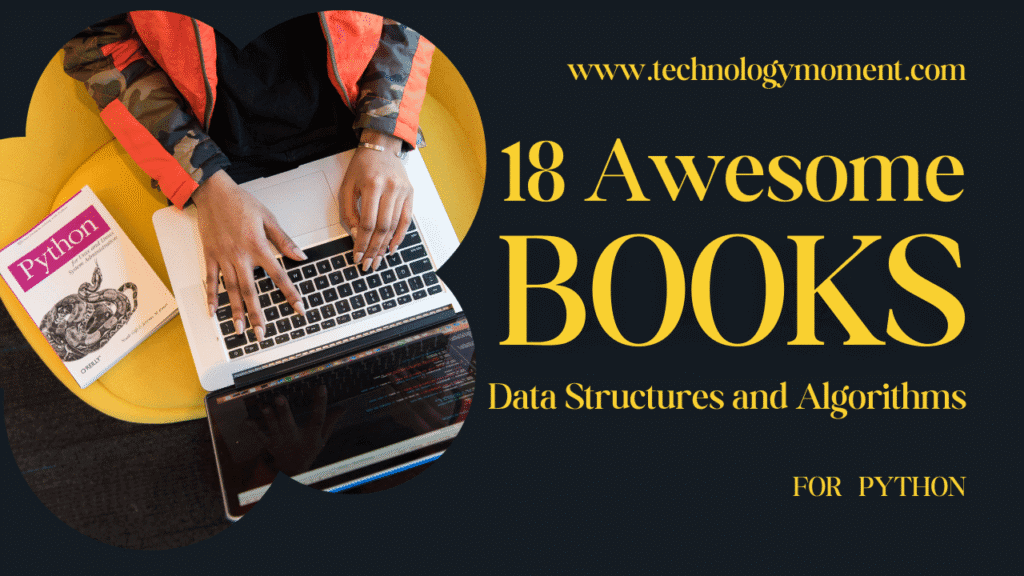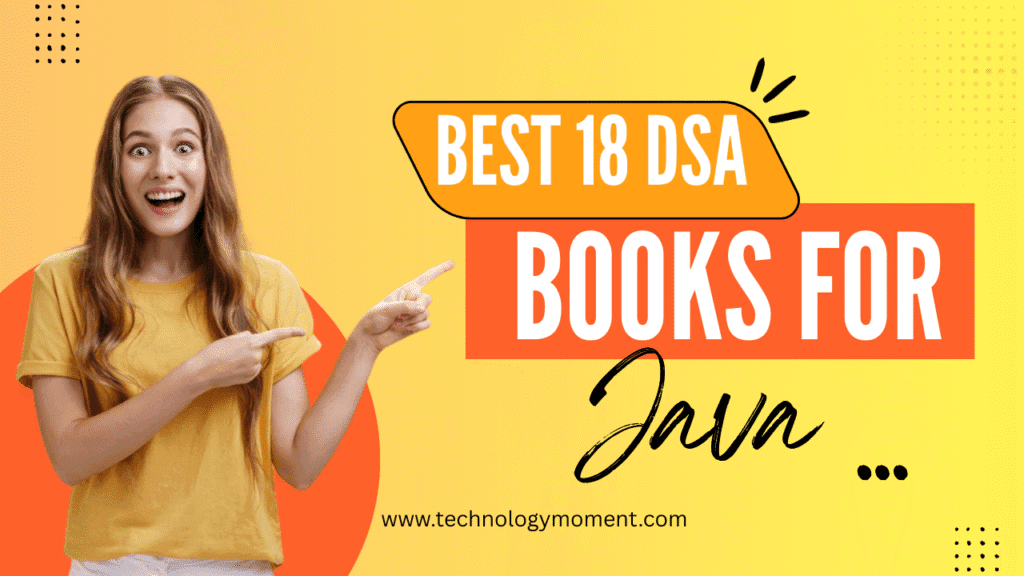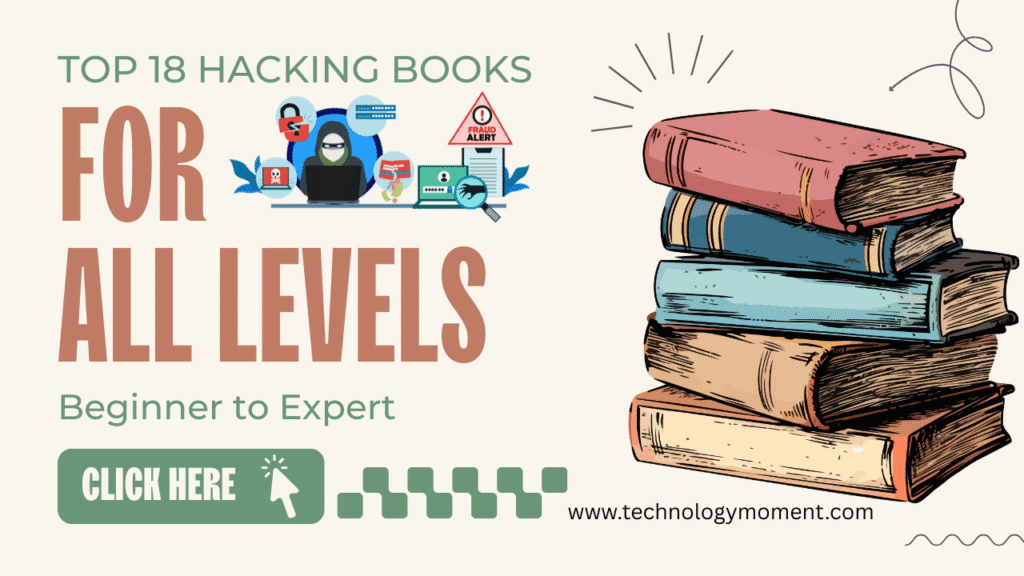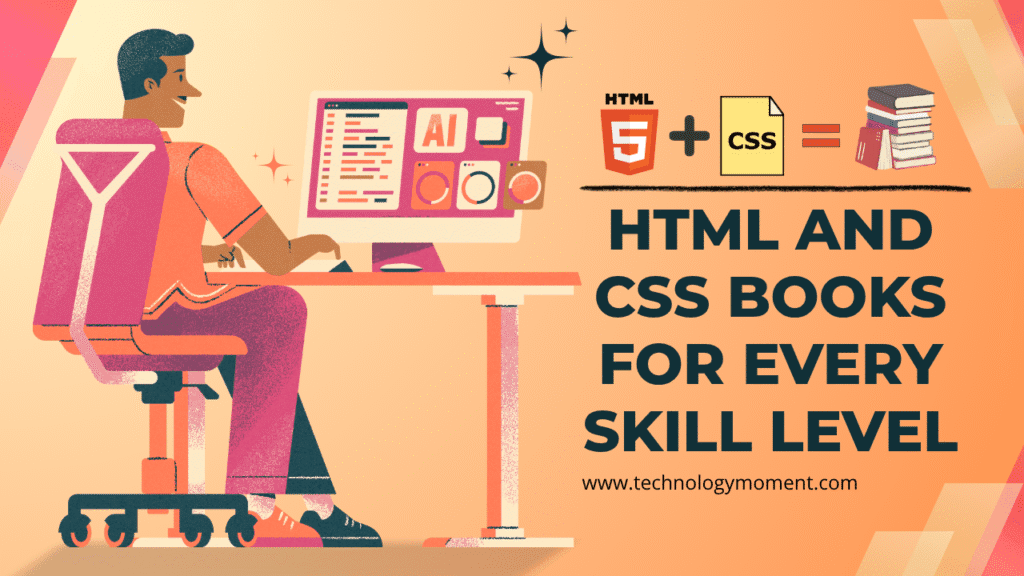Welcome to Technology Moment – Your Gateway to Cloud Excellence. In today’s digital-first world, technology isn’t just a tool—it’s the engine driving innovation, growth, and transformation. And few tools have reshaped the tech landscape as dramatically as Amazon Web Services (AWS).
Whether you’re an aspiring cloud developer, a seasoned IT pro, or someone simply curious about how the cloud actually works, AWS has likely crossed your radar. And for good reason—AWS is the world’s leading cloud platform, offering everything from computing power to machine learning, serverless tech, security solutions, and much more. It’s the gold standard for cloud computing, and mastering it can open doors to some of the most in-demand careers in tech today.
But here’s the thing: AWS is vast. Like, really vast. With hundreds of services and countless use cases, it can feel like trying to drink from a firehose if you’re just starting out. That’s where curated learning resources—especially well-written, thoughtfully organized books—come in clutch.
At Technology Moment, we’re passionate about helping you navigate the noisy world of cloud education. That’s why we’ve created this ultimate guide to the best AWS books available today. These aren’t just random picks from the internet. We’ve hand-selected titles that are praised by experts, loved by learners, and proven to deliver value at every stage of your AWS journey—from beginner to expert and even niche specialties like security or serverless computing.
So, grab your favorite reading chair, charge your Kindle, or clear some space on your desk—because we’re diving into the top AWS books that can elevate your cloud game.
Table of Contents
Imagine this: You’re working in IT support, tired of repetitive tickets and low-code tasks, and you hear your colleague talking about landing a remote job that pays twice your salary—all because they upskilled in AWS. Sounds like magic, right? But it’s not. It’s the real-world impact of cloud computing, and more specifically, AWS—the backbone of modern digital infrastructure.
AWS is not just another tech buzzword. It’s powering everything from Netflix streams and online banking to startups in their garages building the next big app. Whether you want to develop apps, analyze data, manage infrastructure, or lead DevOps workflows—AWS is where it’s at.
At Technology Moment, we’ve met dozens of people who’ve transformed their careers—some even their lives—by diving into AWS. And while YouTube videos and crash courses help, books are where the real mastery begins. They provide structured, deep, and focused learning—helping you connect the dots that quick tutorials often miss.
This guide isn’t just a list—it’s a journey. We’ll walk through AWS learning levels, explore top book recommendations, and share stories from real learners. You’ll see which book fits your level and why that matters more than you think.
AWS Learning Levels and Their Importance
Think of learning AWS like climbing a mountain. You don’t jump to the summit in one leap—you need a path, and you need the right gear for each stage.
Beginner is where most start—maybe you’ve never logged into the AWS console or heard of EC2. This is the stage of building awareness, learning the vocabulary, and getting used to the AWS mindset.
Foundation level takes you further—you understand the basics and are ready to explore AWS services in more technical depth. Think of it like building your cloud “grammar,” so you can start speaking the language fluently.
Intermediate is where you can deploy small-scale apps, understand billing, and are prepping for certifications like Solutions Architect – Associate. You’ve got cloud experience under your belt but now need strategic insight.
Advanced and Expert levels? That’s for seasoned professionals—cloud engineers, architects, or those leading migrations. Here, books dive into infrastructure automation, scalability, security, and real-world design patterns. It’s no longer just about using AWS. It’s about building bulletproof systems on it.
Then, there’s Specialization—think of it like choosing your major. Machine learning, serverless architecture, cybersecurity… Each niche requires specific skills and tools. Specialization books guide you deep into the trenches of your chosen field.
Skipping levels is tempting, but dangerous. We’ve seen learners buy a “professional” level AWS book, only to get overwhelmed and quit. Our advice? Start at your true level—even if your ego resists—and move up steadily. AWS is not a sprint; it’s a career marathon.

📗 Top 3 AWS Books for Beginners
Meet Sarah. She was a marketing coordinator with zero IT background but a passion for tech. She heard that AWS is beginner-friendly—if you approach it the right way. Her first stop? Hiroko Nishimura’s AWS for Non-Engineers. This book spoke her language—simple explanations, relatable examples, and no tech snobbery. Sarah didn’t just learn AWS basics; she felt confident for the first time navigating a console she once found intimidating.
Another great entry point is Amazon Web Services in Action by Michael and Andreas Wittig. It’s like learning from two friendly mentors who don’t rush you but still challenge you just enough. The hands-on projects give you something to do, not just read, which makes all the difference when it comes to retaining information.
Finally, there’s AWS Basics: Beginner’s Guide by Adam Garren. It’s clean, concise, and super practical. Perfect if you’re juggling a day job and trying to squeeze in 30 minutes of learning before bed. Many part-time learners appreciate this book’s digestible structure.
Practical tip: Don’t feel pressure to memorize every service name. At the beginner stage, your goal is familiarity, not mastery. Focus on building curiosity and momentum.
📘 Top 3 AWS Books for Foundation Level
Let’s talk about Alex. He’s a junior sysadmin who already knows how to spin up a server but feels lost when terms like S3 lifecycle policies or IAM roles come up. He picked up AWS Certified Cloud Practitioner Study Guide by Ben Piper and David Clinton. This book not only helped him pass the certification but gave him a strong technical foundation, especially in cloud economics and basic security models.
Then there’s Cloud Computing: Concepts, Technology & Architecture by Thomas Erl. This one isn’t AWS-exclusive, but it helps you understand why the cloud works the way it does. It’s like learning the rules of chess before diving into actual AWS services. If you’re a thinker who enjoys knowing the “why” behind the “how,” this book is your jam.
Lastly, Learning AWS by Mark Wilkins is a favorite among hands-on learners. It’s ideal for those who want to get their hands dirty while still understanding the “what” and “why” of each service. It balances concept and practice beautifully.
Foundation level is about connecting dots. You start to see how EC2, S3, and IAM all interact like pieces of a puzzle. It’s the stage where AWS starts feeling less like a jungle and more like a well-mapped city.
Advice from the field: At this stage, start building small projects—a basic website, a static hosting bucket, or even a Lambda function. Books will guide you, but projects will cement your learning.
Top 3 AWS Books for Intermediate Level
Once you’ve grasped the basics of AWS — maybe you’ve tinkered around with EC2 instances or launched your first S3 bucket — you hit this exciting (and slightly intimidating) stage called the “intermediate level.” It’s where you stop being a tourist in the AWS world and start living there like a local.
Let me tell you about Raj, a mid-level developer from Mumbai. After completing the AWS Cloud Practitioner cert, he felt stuck. Tutorials no longer challenged him, but diving into advanced architecture was still overwhelming. He came upon Ben Piper’s “AWS Associate Study Guide” at that point.
This book became Raj’s roadmap. It didn’t just throw technical jargon at him — it walked him through actual scenarios: like designing a fault-tolerant web app, securing a VPC, and optimizing cost using EC2 spot instances. Raj told me it felt like the author was sitting beside him, saying, “Here’s what matters, and here’s why it matters.”
Next, Raj picked up the RESTful Web Services Cookbook by Subbu Allamaraju. Think of this one like AWS’s version of a kitchen survival manual. Each “recipe” gave Raj quick, real-world solutions — how to automate backups with Lambda, how to log everything for security audits, and how to scale a database cluster during high traffic. For someone juggling work and learning, this format made him feel like a productivity ninja.
To complete his intermediate toolkit, Raj read AWS for Solutions Architects. It wasn’t flashy — but incredibly powerful. Raj used the strategies to cut his startup’s AWS bill by 35%. Suddenly, AWS wasn’t just about launching servers; it was about being smart with infrastructure decisions.
The intermediate level is where many learners either plateau or propel forward. The right books at this stage can help you shift from a learner to a practitioner — confident enough to design and troubleshoot cloud solutions in real business settings.
Top 3 AWS Books for Advanced Learners
If intermediate is about practicing AWS, advanced is about mastering it. Here, you start to think like an architect — not just following steps, but making strategic decisions that affect scalability, security, and business outcomes.
Let’s meet Emily, a cloud engineer from Berlin. After three years working on AWS, she decided to go for the AWS Certified Solutions Architect Professional exam — arguably one of the toughest in the cloud world. Her go-to book? “AWS Certified Solutions Architect” by Brett McLaughlin.
Emily said reading this book felt like “going from college physics to rocket science.” But it taught her how to build resilient systems for global traffic, design multi-region failover strategies, and deal with real-world edge cases. The book didn’t just prep her for an exam — it transformed her problem-solving mindset.
After acing her certification, Emily faced a big project: migrating a legacy banking app to a fully automated cloud environment. This is where Kief Morris’ “Infrastructure as Code” was useful. She learned how to treat infrastructure like software — version it, test it, automate it.
Finally, Emily turned to “Designing” by Martin Kleppmann. While not AWS-exclusive, this book rewired how she thought about data — scaling databases, managing eventual consistency, and building systems that could survive failure without losing data. For her, this wasn’t just technical knowledge; it was a mindset shift from “getting things done” to “getting things done right, at scale.”
Advanced learners face messy problems — the kind Google can’t always answer. Books at this stage are less about direct instruction and more about perspective, systems thinking, and making trade-offs. They’re for cloud builders who want to craft elegant, resilient architectures.
Top 3 AWS Books for Experts
Now we enter the expert zone — the AWS deep end. This isn’t about passing certifications or deploying apps. If you’ve ever been the person in the room everyone turns to when AWS breaks, this section is for you.
Take Carlos, a lead DevOps architect in São Paulo. He was managing a team that was hitting scaling issues — and people were burning out. He needed a shift in culture and tooling. Enter “DevOps Handbook” by Gene Kim. This book didn’t teach him how to use AWS CLI or build a Lambda — it taught him how to build teams that could ship reliable software faster, with fewer bugs, and happier developers.
Carlos combined that with Justin Domingus and John Arundel’s “Cloud Native DevOps with Kubernetes”. Since his team was moving from EC2 to containers, he needed a strategy. This book was like a blueprint — explaining how to blend AWS services (like EKS, IAM, and CloudWatch) with Kubernetes principles. It taught his team how to build and run modern cloud-native applications with confidence.
And here’s where it gets real: Carlos was asked to help prep AWS solutions engineers for tough client interviews. That’s when he discovered “Advanced AWS Interview Questions & Answers” by Nova. He didn’t expect much from it — but the detailed, scenario-based questions were gold. It helped his team sharpen their problem-solving abilities, think on their feet, and explain complex AWS topics with clarity. Even experts benefit from revisiting fundamentals — especially when those fundamentals are tested under pressure.
Expert-level AWS books are not about memorizing. They’re about mastery, leadership, and evolving your mindset. They push you beyond the tech to see the big picture — team dynamics, system-wide architecture, and future-proofing.
📚 Top 3 AWS Books for Specialization
When you’ve already tackled the basics and intermediate layers of AWS, specialization is where things get seriously exciting—and specific. You start finding your niche, whether it’s serverless architecture, machine learning, or cloud security.
Take Serverless by Peter Sbarski, for instance. Imagine working on a project where you need to scale an app fast, but you don’t want to manage any servers. That book becomes your field guide. It’s not just theory—it gives you the mindset shift needed for serverless computing. It helped one of my colleagues build a pay-as-you-go backend for a startup in record time—no infrastructure headaches.
Then there’s Machine Learning on AWS by Chris Fregly and Antje Barth. This one is pure gold for data scientists stepping into the cloud world. One of my developer friends who was fluent in Python but clueless about AWS used this book to deploy a real-time sentiment analysis app. He always says, “That book turned me from a machine learning enthusiast into a cloud-based ML engineer.”
And AWS Security Best Practices by Albert Anthony? That’s your handbook when you’re worried about cloud breaches and compliance. A consultant I know saved a small business from a massive data misconfiguration just by applying principles from that book. It’s not just about reading—it’s about making real impact.
📖 How to Choose the Right AWS Book for Your Level
Picking the right book can feel like wandering into a giant bookstore and not knowing where to start. But here’s a trick—start with your “why.”
Are you trying to get certified, switch careers, build your own SaaS product, or just explore out of curiosity? Once your goal is clear, your level usually shows itself. If you’re opening AWS for the first time and those IAM roles and EC2 instances sound like sci-fi, stick with books like AWS for Non-Engineers or AWS Basics. They don’t assume you’ve been coding since birth.
But let’s say you’ve already played with EC2, S3, maybe written some cloudformation templates—you’re in the intermediate or advanced boat. Books like AWS Solutions Architect Associate Study Guide or Infrastructure as Code will keep you engaged without making your brain explode.
Here’s a real story—my cousin thought he was a beginner. He bought an advanced book and felt lost halfway through the second chapter. We talked, figured out he needed a foundation book first, and once he switched, everything clicked. So take it slow. There’s no shame in stepping back to move forward faster.
📘 Benefits of Reading AWS Books Over Free Content
Let’s be honest—there’s tons of free stuff out there. Blogs, YouTube videos, forums, Reddit threads… it’s overwhelming. So why invest time (and money) in books?
Books give you structure. Unlike YouTube rabbit holes or outdated blog posts, a well-written AWS book is like a guided hike through a mountain trail. Someone has already done the hard work of organizing the path for you. You won’t find yourself halfway up the trail thinking, “Wait, did I miss a turn?”
Also, books often come with real-world case studies, diagrams, and best practices that blog posts just don’t get into. I remember reading Amazon Web Services in Action and suddenly understanding VPCs and subnets not as abstract networks, but like planning the traffic of an actual city. That depth just doesn’t come from a 10-minute video.
And here’s something personal—when you read a book, you’re investing time, which makes you take the learning seriously. I’ve seen people binge a course in a day and forget it the next, but the ones who read through AWS Certified Cloud Practitioner Study Guide page by page? They passed and remembered what they learned.
📚 Complementary Resources Along with Books
Books are amazing, but they’re not the only ingredient in your AWS journey. Think of them like the main dish—you still need side dishes to complete the meal.
One thing that pairs beautifully with books is hands-on labs. Platforms like AWS Skill Builder or Qwiklabs let you practice everything you’re reading. So if the book says, “Spin up an EC2 instance,” you’re not just nodding along—you’re actually doing it. That muscle memory sticks.
AWS’s official documentation is another secret weapon. Yes, it’s dense. But after reading about a topic in a book, you’ll find that the docs start making way more sense. It’s like the book is the story and the docs are the footnotes.
Also, don’t overlook YouTube creators and AWS-specific blogs. I once followed a blog that walked through a multi-account AWS organization setup that wasn’t even covered in the books I had. It gave me the edge in a job interview.
In short, use books as your core guide, and then build out your experience with tools, labs, real cloud accounts, and community resources. It’s like learning to cook—you read the recipe (book), watch someone do it (video), and then you get in the kitchen (hands-on lab).
🧠 Final Thoughts on Mastering AWS Through Books
Let’s face it—learning AWS can feel like staring at a massive mountain, especially when you’re just starting out. Books offer a trail—well-lit, well-marked, and at your own pace.
Think of a good AWS book like a wise mentor. It’s the kind of mentor who doesn’t just toss information at you but walks you through real-world problems, nudges you with hands-on exercises, and warns you of the common pitfalls before you trip over them. I remember when I first cracked open Amazon Web Services in Action—I had no idea what EC2 even stood for. But after a few chapters, I wasn’t just reading about EC2, I was launching my own instances and configuring them like a pro. That’s the power of a well-written book—it takes abstract ideas and turns them into “Aha!” moments.
You might be tempted to binge-watch tutorials or skim blog posts, and while those are great for quick wins, they often miss the big picture. They’re less about shortcuts and more about building a strong foundation. And in a field as fast-changing as cloud computing, a solid foundation is your best armor.
One of the smartest things you can do is choose books aligned with your current skill level. If you’re a beginner, don’t feel pressured to jump into professional certification guides. Start with something that builds your confidence. Then, step by step, upgrade your learning. That’s how real growth happens—not overnight, but chapter by chapter.
Also, don’t read passively. Highlight, take notes, create flashcards, try out the code samples. And yes, mess up. Break things. Fix them. That’s how you learn AWS—not just by reading, but by doing what the books guide you to do. Treat each book like a mini project, not just reading material.
And remember: every AWS expert you see out there was once where you are right now—confused, curious, and maybe even a little overwhelmed. They just kept reading, practicing, and failing forward.
💬 FAQs
How do I know which AWS book is right for me?
A good rule of thumb is to be honest about where you’re starting. If you’re brand new, look for books that break down concepts without assuming prior tech knowledge—like AWS for Non-Engineers. But if you’ve already dabbled with AWS and want to pursue certifications, go for focused guides like Ben Piper’s study materials. Try reading sample chapters when available to see if the writing style clicks with you.
Is reading books enough to learn AWS?
Books give you the theory and the structure, but AWS is like riding a bike—you need to get on and start pedaling. That means pairing your reading with practical exercises. Set up a free-tier AWS account and try out the examples in the books. The more hands-on you are, the faster everything will click.
Can I really build a career in cloud computing just by reading books?
Reading is a fantastic start, but combine it with practice and community. Use books to prepare for certifications, which are key credentials in cloud careers. Then, contribute to GitHub projects, take on freelance gigs, or even volunteer to set up cloud infrastructure for local businesses.
How long will it take to become good at AWS through books?
With focused effort—say, 1–2 hours a day—you can go from beginner to certification-ready in 3 to 6 months. The key isn’t speed but consistency. Just don’t rush through the material. You want to understand, not just finish.
What if I get stuck or bored reading technical books?
You’re not alone! It’s okay to pause and explore other formats—videos, tutorials, or podcasts. Then come back to the book with a fresh perspective. Also, try forming or joining a study group. Discussing chapters with others can breathe life into even the driest technical content. And sometimes, just switching to a different author can reignite your interest.













